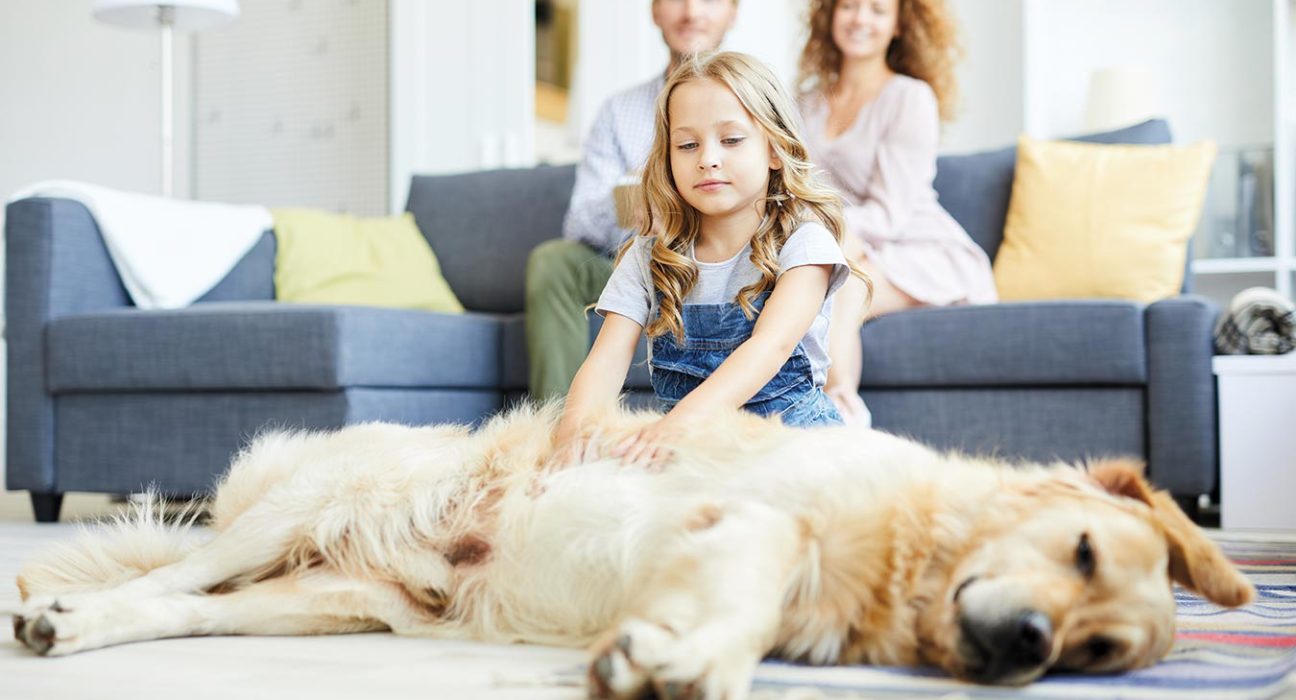We have seen a number of social media posts circulating that discuss the various disinfectants that work on COVID-19 and how it relates to our pets’ health. Some of these posts have contained misinformation that could lead pet owners to panic and limit use of products that are important in the fight against this dangerous virus. We hope to help clarify some of this information.
Disinfectants & hand sanitizers
Washing your hands with soap and water is still one of the most effective defences against infection. Washing for a minimum of 20 seconds is very important. Disinfectants and hand sanitizers will not work well if there is debris present; You need the surface of your hands clear of organic debris first, before hand sanitizers will work effectively. Likewise, when sanitizing surfaces, the surface must be clean before lysol, or other disinfectants will work properly. Given this fact, spraying or wiping disinfectants on your pet is not an effective strategy for any infectious diseases that may be lingering on your pet’s fur.
Pets & transmission of COVID-19
There is no evidence that pets transmit COVID-19 in the same manner that humans directly transmit it to each other. However, cats do appear to be susceptible to contracting the virus and uncommon human-to-cat and cat-to-cat transmission has been documented. It is still uncertain whether cats can develop symptoms from the illness but it is suspected to be unlikely. Therefore we must consider that there is a possibility of pet-to-human transmission. There is also the possibility that the virus could survive for a period of time on an animal’s fur. Studies have not been done to determine the actual risk level of this, so at this time we are advising you to limit your pet’s contact with others outside of your household. If you are infected with COVID-19, wash your hands well and limit close contact with your pet if possible. That being said, human-to-human is still the overwhelmingly dominant transmission risk.
Hand sanitizer toxicity in pets
The primary ingredient in most hand sanitizers is alcohol, usually found in concentrations of 60-85% depending on the product. If your pet was to consume a significant amount of this product it could be very dangerous, similar to alcohol poisoning in humans. Another compound that may be in hand sanitizer (though it appears to be a rare ingredient these days) is propylene glycol. This is NOT the same as ethylene glycol, which is found in some anti-freeze and is exceptionally toxic. Cats do seem to be more sensitive to propylene glycol than other animals. However, the amount on your hands from applying hand sanitizer would not be sufficient to have adverse effects on your pet.
Disinfectant sprays & wipes
The main compounds of concern in disinfectants are phenols. Phenols can be in a number of products including “ALL NATURAL” products (plants contain phenols in varying concentrations and essential oils tend to have a high concentration of phenols) Phenols can be toxic if ingested or inhaled. HOWEVER, while they used to be present in much higher levels in some products they are not commonly found in products used today. When they are present, they are typically in low enough concentrations that they are unlikely to be toxic with casual exposure. As with hand sanitizers, it’s best to allow the product to dry completely before handling. Aerosol sprays in general can be an irritant so it is best to avoid spraying aerosols in close proximity to your pets, just as you would avoid spraying it too close to another human.
The primary ingredient in most hand sanitizers is alcohol, usually found in concentrations of 60-85% depending on the product. If your pet was to consume a significant amount of this product it could be very dangerous, similar to alcohol poisoning in humans.
Bottom line
Do not allow your pet (or humans!) to consume larger quantities of these common disinfectants. It is unlikely that pets will want to consume these products; they do not taste good! However, we know that there are some animals out there that will eat just about anything, so if you have a pet like this, it’s best to keep these products out of reach.Allow your hands and other treated surfaces to dry completely before your pet comes in contact with them. Avoid spraying aerosols too closely to your pet, your own face or that of other humans to avoid irritating the lungs.
If you follow these guidelines your pet will be safe and you will be more successful at limiting the transmission of COVID-19. That being said, if you are ever concerned about any product your pet has ingested please contact us at 519-653-1003 or the pet poison hotline at 1-800 548-2423. If you have a question about the safety of a particular cleaning product before you use it, please email us at
info@gatewaypethospital.com and we will respond as soon as possible.
Trina Stewart is the Editor of HOMES+ Locale Magazine. Originally from Cambridge, Ontario, Trina loves exploring the area and embracing the activities, events, and local businesses.















